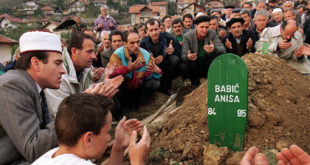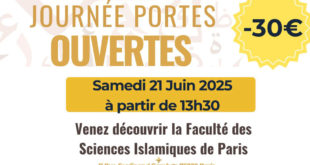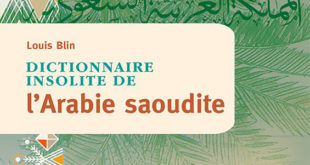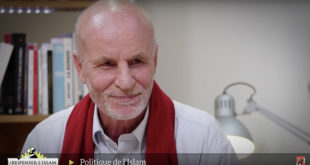Dr. Karim IFRAK is an Islamologist specializing in the geopolitics of the Muslim worlds
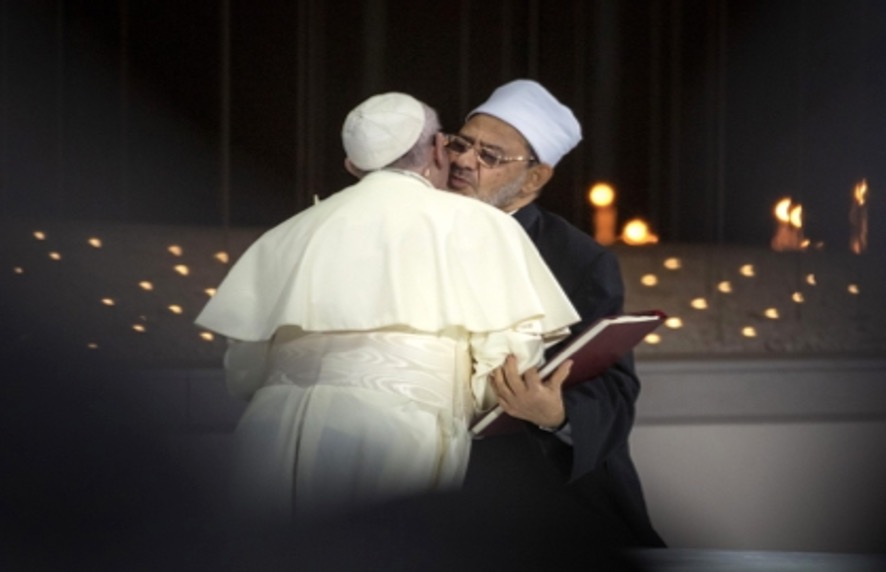
It would be disregarding Islam, although this is generally the case, to reduce it to these radical, excessively minority components, although they dominate media spaces and political discourse. Components involved, most often directly, as well as without their knowledge, in the disfiguration of the image of Islam and Muslims. As for the actors of the violence, al-Qaeda and Daesh, who are unequivocally guilty of the massacre of many innocent people throughout the world (Muslims in particular), it goes without saying that they are unanimously condemned by the entire Muslim world. A collective rejection that has set as its mission the call to fight against deadly ideologies, which are opposed to human values and to the promotion of the virtues of tolerance intrinsic to Islam.
In 2014, when ISIS was at its highest level of violence, the influential Iraqi Ayatollah Ali Husseini al-Sistani, risking his life, did not hesitate to publish several fatwas (edicts) against this terrorist organization. In 2019, he called for an international investigation into the « barbaric crimes » perpetrated by this bloody hydra against Iraqi society, its minorities in particular: the Yazidis of Sinjar, the Christians of Mosul and the Turkmens of Tal Afar. This was a courageous position that urged Pope Francis to meet the country’s highest Shiite authority in the holy city of al-Najaf in March 2021.
The 2014 al-Azhar Declaration on Combating Extremism and Terrorism is another good example. In her second article, she states that: « Muslims and Christians in the East are brothers, they belong to the same civilization, to the same nations… the diversity of religions and faiths will remain an indispensable witness for them and for the world. » A declaration that was born from the contribution of several personalities from the Muslim religious, political and intellectual worlds and that led, in 2015, to the birth of the Council of Muslim Wise Men. The latter, in the framework of the Peace Caravans, undertook to organize numerous international conferences with the clear objective of combating subversive ideologies and extremism leading to violence.
The Forum for Peace in Muslim Societies, also founded in 2014 and chaired by the famous Mauritanian scholar Abd Allah ben Bayyah, is another good example. In response to the terrorist attacks of al-Qaeda and Daesh, The Forum held its first meeting in April 2015 in Abu Dhabi, in which 350 religious leaders from the Muslim world took part. Like one man, they denounced the jihadist terrorism and religious extremism that have haunted the Muslim world for decades.
Held in Marrakech in January 2016, The Marrakech Appeal, under the patronage of King Mohammed VI, brought together nearly 300 Muslim religious leaders from more than 120 countries. Marked by its remarkable method of work, this Appeal managed to associate Muslims with non-Muslims, especially persecuted minorities : Druze, Yazidis, Chaldeans, etc. Deploring « the deterioration of the situation in different parts of the Islamic world, due to the use of violence and weapons to settle disputes and impose opinions », he denounced « these criminal groupings » which arrogate the right « to enact rules » which are based on a dangerous distortion of the « concepts » and the « initial designs » of Islam. Forged in the spirit of « The Medina Charter », The Marrakech Appeal was intended to be an unequivocal guarantee of minority rights that underpins the Constitution of a multiconfessional society. Drawing on its uniqueness in « The Medina Charter », The Appeal was conceived as a clear response by the King of Morocco to the challenges posed by the abuses committed by Daesh against religious minorities.
In a continuation of these actions, Saudi Arabia organized in May 2019, through the World Islamic League, currently led by Mohamed al-Issa, a huge international congress in Mecca. Supported by the Saudi state, it was placed under the aegis of the Servant of the Two Holy Mosques (King Salman), and its opening ceremony presided over by the Governor of Mecca, Prince Khaled al-Faysal. More than 1,200 religious dignitaries and dignitaries from 139 countries took part in the signing of the « Mecca Charter ». Referring to the « Charter of Medina » signed in 622 between the Prophet of Islam and local tribes of all faiths, the latter guaranteed everyone freedom of worship. In keeping with its historical continuity, « the Charter of Mecca » sought to recall the ancient values of respect, openness and moderation that Islam has adopted since its early days. In this perspective, it affirms the importance of combating extremist ideologies and condemns those who call for hatred of the Other.
It would therefore have been understood that reducing Islam to the excesses of some of its extremely minority ideological currents is nonsense. The Muslim world, by its heterogeneous nature, remains a complex world. A reality that requires, when thinking of « Islam », to take into account its plural aspects amalgamated under a single word.
At the heart of its heterogeneous Ummah, it is so easy to see, from one country to another, the cultural, ideological, political, economic, etc. distances to which it is naturally subject. These factual differences infuse the theory of a « clash of civilizations » and discredit the proponents of such a fallacy. These antipodes also destroy the utopian world that Muslim identities confine themselves to presenting as « One and indivisible ». A perfectly organized and highly hierarchical world, ready, at the slightest snap of your fingers, to attack the world. This fact undermines the fixist vision of the Muslim world and its societies. An essentialization that concludes that there is a continuum between its past and present, a dependency between its north and south, its east and its west. This is in conflict with those who say that Islam, from China to the Mediterranean, is in a state of turmoil and that everywhere is burning the fire of its hatred against humanity. How else can it be explained that, in the heart of this same Ummah, countries such as Syria, Iraq or Azerbaijan are secular, while others such as Iran, Pakistan or Saudi Arabia claim their Islamism loudly and clearly? That Egypt, the cradle of Islamism and Saudi Arabia of Salafism, are currently facing an abnormal progression of atheism? That in Indonesia, a country of 220 million Muslims, at the same time as it claims its secularity loud and clear, officially and indiscriminately recognize six religions : Islam, Protestantism, Catholicism, Hinduism, Buddhism and Confucianism.
A DIALOG CULTIVATED FOR 15 CENTURIES
Inclusive, Islam has been forging itself, from the very beginning, on the fundamental concept of pluralism and universalism. This position becomes clear through the example of his first followers, Salman al-Farisi (Persian), Bilal al-Habachi (Nubian) and Suhayb al-Rumi (Byzantine). Non-natives who symbolize the great effort that Islam makes in its recognition of the Other, through the dialog that it has cultivated for 15 centuries now.
Inclusiveness and dialog, two resources that Islam has cultivated since its origins and that are easy to see, starting with the biblical phenomenon that is omnipresent in the Koranic text. A phenomenon that seems to arise from the same source, from the same “phratry”, especially since it is inexorably different from the Scriptures of adogmatic traditions. In this sense, it would suffice to summon the Rig-Veda (Hinduism), the Sutra of the Lotus (Buddhism), the Avesta (Zoroastrianism) or the Hermetica (Greek-Egyptian mystico-philosophy) to definitively realize this.
Apart from Christology, perceived by Christian and Muslim theologians as the source of the doctrinal disagreement between the two monotheistic traditions, the Koran evokes Jesus and his Mother with respect, while taking care to present them as models to follow. Two of the most eminent figures whom the Quran offers to the faithful and for whom the Islamic tradition has always cultivated a remarkable popular devotion. Thus, apart from the Prophet of Islam, the lights of Revelation are focused on Jesus and Mary, in addition to Moses and Abraham. And although the Quran constantly praises Christ and his Mother, the Sunnah lists more than 300 Hadiths who strive to make them as beautiful as possible. This tradition actually dates back to well before the advent of Islam, since the walls of the Kaaba (Mecca) housed frescoes representing Abraham, Ishmael and the Virgin Mary. Regrettably, for the great mass of believers of both faiths, an unfathomable shared ignorance prevails.
So the dialog between Islam and Christianity goes back a long way, to its very early days. This takes root, starting with Sura 19, which bears the name of Mary, the only woman (also the case of men outside the Prophets) whom the Koran takes care to name. It goes back a long way, through the powerful refuge granted by the Christian king of Abyssinia the Negus, to the first Muslims who fled, on the orders of the Prophet, the persecution of their implacable executioners. This is an act that has been part of posterity and that Muslims around the world have been transmitting to each other faithfully from generation to generation.
Through the Quran, Islam has always strongly urged Muslims to engage in dialog with people of goodwill, particularly those who adhere to monotheistic traditions. The followers of the half-empty glass will not fail to object that for 15 centuries now, the history of relations between Islam and Christianity has never escaped conflicts, tensions and other hostilities. Of course. Nevertheless, we will not fail to remind them that, faced with each dark hour of this common history, there have always been fertile and bright times. We will not fail to remind them that in these two worlds, a mixture of social order has always been the rule. It is not a Muslim-majority country without a Christian community, and the reverse is also true. These are the obvious cases, through time and space, of Andalusia, Anatolia, the East, the Greater Khorasan or the Greater Russia, among others. These are the obvious cases of Turkey, the seat of the Patriarchate of Constantinople, Egypt, the home of the « Pope » of Coptic Christians and Iraq, the cradle of the Chaldean patriarchate. As for Syria, it is still home to the Syriac Orthodox Church founded in 37 AD by Saint Paul (m. 67) in Antioch, and who considers himself the mother of all the Churches of the Levant.
DIALOG AT THE HIGHEST LEVEL
Aware of this common heritage and fraternal proximity, Vatican II agreed in October 1965 to formalize the path of dialog with the Muslim world. In this sense, the Encyclical Nostra Aetate states : “The Church also looks with esteem at the Muslims, who worship the one living and enduring God, merciful and almighty, creator of heaven and earth, who spoke to men. They seek to submit themselves with all their souls to the decrees of God, even if they are hidden, as was submitted to God Abraham, to whom Islamic faith readily refers. Although they do not recognize Jesus as God, they worship him as a prophet; they honor his virgin mother, Mary, and sometimes even invoke him with piety. (…) If, over the centuries, there have been many divisions and enmities between Christians and Muslims, the Council urges them all to forget the past and to strive sincerely for mutual understanding, and to protect and promote together, for all men, social justice, moral values, peace and freedom”.
Since then, the pontifical sovereigns who have succeeded each other at the head of the Church have been constantly entertaining this flame. Converted into pilgrims to peace, they have increased visits to many Muslim countries to meet their Heads of State and Religious Leaders. These are Azerbaijan, Bangladesh, Egypt, Iraq, Jordan, Morocco, Pakistan, Palestine, Sudan Syria, Tunisia, Turkey, and the United Arab Emirates.T
hus, when Pope Francis visited Morocco in 2019, nearly thirty-four years after John Paul II (1985), the latter declared that « The Lord wants brotherhood between religions, and in a special way with Muslims », before adding: ‘It is therefore essential, in order to participate in the building of an open, plural and solidarity-based society, to develop and constantly assume without weakness the culture of dialog as a way forward; Collaboration as conduct; reciprocal knowledge as a method and criterion. It is this path that we are called to take without ever tiring, to help us overcome together the tensions and misunderstandings, the masks and stereotypes that always lead to fear and opposition. ”.
These words were full of wisdom, and the King of Morocco did not remain insensitive to them, as he stated in a speech since recorded in the annals: « Your Holiness’s visit to Morocco comes in a context of challenges for the community of nations, the community of all believers. (…) We must fight against the evils of another age, which feed on the betrayal and instrumentalization of the divine Message by advocating the denial of the other and other miscreant theories. In this world in search of references, the Kingdom of Morocco has never ceased to proclaim, teach and live on a daily basis the brotherhood of the sons of Abraham – a founding pillar of the very rich diversity of Moroccan civilization. (…) We, the King of Morocco, Amir Al Mouminine, guarantee the free exercise of worship. We are the Commander of all believers. As Commander of the Believers, I cannot speak of the land of Islam, as if they lived there only Muslims. I am, indeed, watching over the free exercise of the religions of the Book and I guarantee it. I protect Moroccan Jews and Christians from other countries who live in Morocco. (…) Radicalisms, whether or not they are religious, are based on the lack of knowledge of the other, ignorance of the other, ignorance at all. « Co-knowledge » is a negation of all forms of radicalism. And it is this co-knowledge that will enable us to meet the challenges of our tormented present. The response to radicalism is neither military nor budgetary; it has only one name: education. ”.
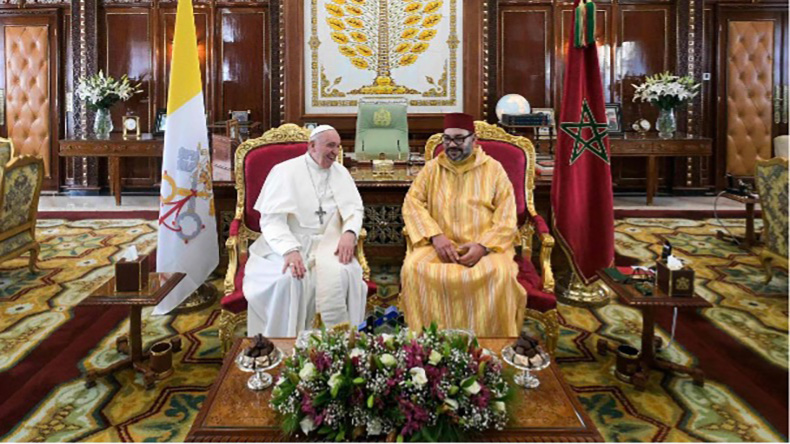
Similarly, when the Argentine Pope visited the United Arab Emirates in February 2019, he did so with the aim of co-signing with the Grand Imam of al-Azhar Ahmed al-Tayeb, a « Document on Human Fraternity ». A historical document of rare uniqueness, it bears witness to the need for dialog in order to work hand in hand to make possible the often fragile construction of peace and brotherhood in the world. It reads :
“In the name of God and all this, Al-Azhar al-Sharif – together with Muslims from the East and the West – together with the Catholic Church – together with Catholics from the East and the West – declare to adopt the culture of dialog as a path; joint collaboration as a course of action; reciprocal knowledge as a method and criterion. (…)
This Document, in accordance with previous International Documents which have emphasized the importance of the role of religions in the construction of world peace, certifies the following:
The strong conviction that the true teachings of religions invite to remain anchored in the values of peace; support the values of mutual knowledge, human brotherhood and common coexistence; to restore wisdom, justice and charity and to reawaken the sense of religiosity among young people, to defend the new generations from the domination of materialist thought, from the danger of the policies of greed for unbridled profit and indifference, based on the law of force and not on the force of law. »
A beautiful occasion that the pontiff took to declare: « From your homeland, I turn to all the countries of this Peninsula to whom I wish to extend my most cordial greeting, with friendship and esteem. With a spirit grateful to the Lord, on this eighth centenary of the meeting between St Francis of Assisi and Sultan al-Malik al-Kāmil, I welcomed the opportunity to come here as a believer thirsty for peace, as a brother who seeks peace with the brothers. Wanting peace, promoting peace, being instruments of peace: we are here for that. ”.

As a multicultural, multi-ethnic and multi-confessional country, it is almost unsurprising that the Republic of Azerbaijan has not hesitated to establish fraternal relations with the Holy See to the point of signing, in 2011, an historic Agreement. Article 1 of the Agreement on the Legal Status of the Catholic Church in Azerbaijan states that: « The Republic of Azerbaijan, which recognizes religious freedom on the basis of its Constitution, guarantees the freedom to profess and practice the Catholic religion in public. The Catholic Church in the Republic of Azerbaijan has the right to organize itself, in accordance with the legislation of the Catholic Church and to carry out its mission within the framework of its religious competence and taking into account the legislation of the Republic of Azerbaijan.«
In the face of so much generosity and openness, the Vatican naturally engaged in a close and remarkable collaboration with this ancestral Caucasian country, one focused in particular on the cultural level. Thus, on the fringes of a series of bilateral agreements signed between the Heydar Aliyev Foundation and the Pontifical Council for Sacred Archeology, several projects for the restoration of religious sites and monuments of Christianity were on the agenda. These include the restoration of the Paleochristian catacombs of Saints Marcellin and Peter, as well as the catacombs of the Basilica of San Sebastian. Two major construction sites followed by that of the catacombs of Saint Commodilus. Catacombs, which according to Professor Fabrizio Bisconti (inspector at the Pontifical Commission for Sacred Archeology) contain artifacts dating from the early days of Christianity, as well as being the burial place of the Christian martyrs Felicio and Adauctus.
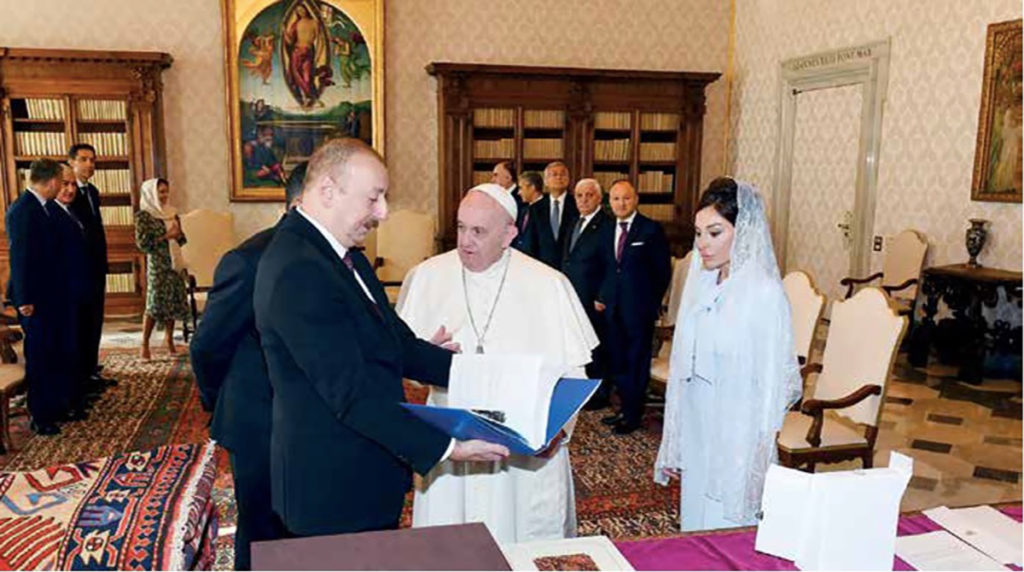
These undeniably remarkable examples are proof by a thousand that dialog, besides being unavoidable, is above all sensitive. It is critical because it is intended to be a path of great opportunity, through which the field of possibilities becomes accessible and the building of peace, its consolidation and its sustainability. In short, he is the symbol of hope without which nothing is possible, his body and mind. It is up to us to preserve it, to make it live and to pass it on.
To the Muslims and Christians of the world, this call is for you: let us celebrate together our « fragile » 15 centuries of dialog.
 Musulmans en France L'actualité des musulmanes et musulmans en France
Musulmans en France L'actualité des musulmanes et musulmans en France
